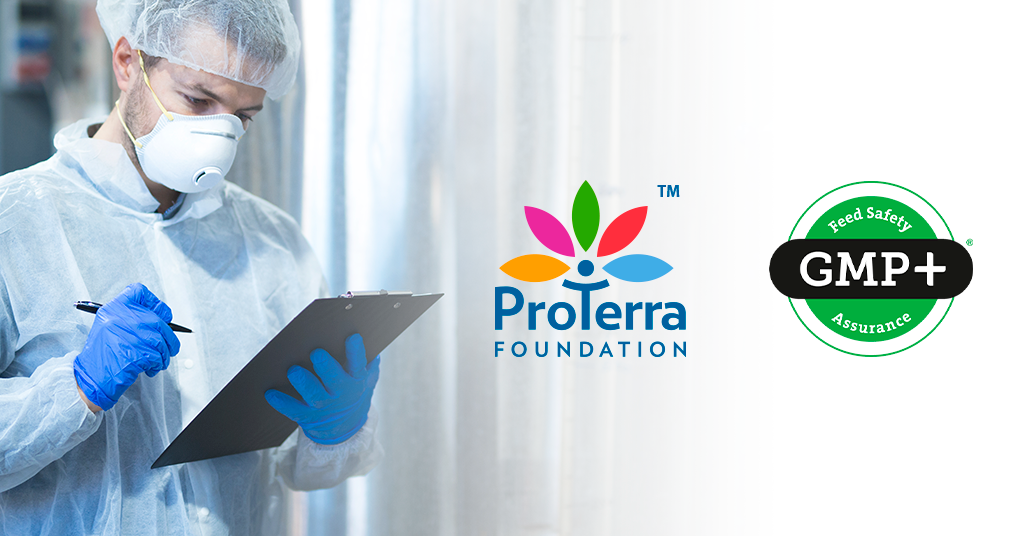ProTerra Standard v4.1 benchmarked against GMP+ Standards

Over the last decade, working reliably has become an absolute necessity for a growing number of companies worldwide. It is becoming increasingly Government-mandated, as consumers have been demanding it. Using a responsible production approach benefits animals, the environment, and future generations. [1]
The ProTerra Standard’s multi-crop and global aspects, which are supported by the benchmark process, help to decrease the number of systems that supply chain actors must manage, simplify procurement policies and processes, and welcome mutual recognition and synergies wherever possible.
GMP+ International[2] announced that from 1 January 2024 there would be a number of crucial developments for companies that trade, process and/or handle soybeans and/or soy products within the QS chain.[3] They also announced the launch of the new GMP+ FRA standard relating to responsible soy (MI 5.1, MI 5.2, MI 5.3 and MI 5.6).
We would like to inform you that ProTerra is one of the accepted standards within MI 5.2 (Responsible pig & poultry feed) and MI 5.6 (Production and Trade of responsible feed), which has been developed to ensure the production and trade of responsible soy (including deforestation-free). “This represents the initial preparations for the entry into force of the EU Deforestation Regulation (EUDR)”.[4]
ProTerra Standard v4.1 and GMP+
The requirements of the ProTerra Standard (V4.1 from September 2019) in relation to its LEVEL II (Transport and Storage, Traders and Dealers) have been benchmarked against the GMP+ requirements (Trade, collection and storage & transhipment GMP+ B3 – Version EN: 1st of July 2018). The results have shown a significant alignment, allowing the ProTerra Foundation to recognise a GMP+B3certified organisation as Level II.
As ProTerra is a non-GMO standard, full recognition requires that organisations also meet the Technical Specifications MI5.4 – GMO controlled (Version EN: 1 July 2022) + Specific Feed Safety Limits GMP+ BA 1 Version EN: 17 December 2019, or equivalent non-GMO Standards, as defined in the ProTerra Standard Principle 5. This aims at ensuring adherence to the core aspects, such as:
- Ban the use of technologies that can edit genes within organisms such as CRISPR/Cas9;
- Defining types of GMO substances that may be used, such as those that are necessary for the production of food products or those used in food or animal feed, is required by law or by regulation, and
- Full segregation from other GMO products and the existence of procedures and records to provide evidence that segregation is maintained, including sampling (strip tests and PCR analysis, for example).
Other key aspects related to ProTerra Level II that are taken into account in GMP+ and are crucial for sustainability are:
- Ban of the use of Pesticides listed in the WHO classes Ia, Ib lists, Rotterdam Convention and Stockholm Convention, as well as pesticides forbidden by local, national, and regional law, may not be used;
- Requirements for testing of products bound to commercialisation for tolerance thresholds of chemical residues (e.g., pesticides) as regulated by the target market and for harmful contaminants maintaining testing records, and
- The need to maintain a Chain of Custody system to ensure traceability.
The alignment between GMP +B3 and ProTerra opens up the opportunity to explore the synergies between the two standards, with positive outcomes for users, such as reduced audit effort and costs, while optimising organisations’ efforts in implementing, maintaining and demonstrating a sustainable, transparent and traceable supply chain that has the potential to meet sustainability claims.